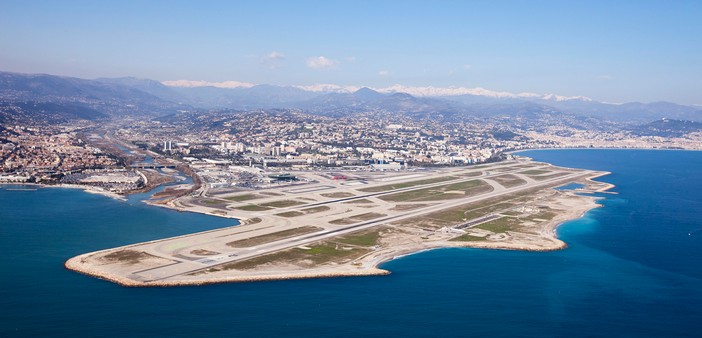Christian Estrosi finally realized that his reckless battle against the so-called privatization of Nice airport was not the right one! In fact, managing air traffic has nothing to do with managing airport services, even if in a complex system everything is connected, as Porter explains with his matrices.
In short, the future development of the Côte d’Azur airport is being played out within the framework of the policy overseen by the Directorate General of Civil Aviation, which directs traffic (literally and figuratively) through the authorization of routes and flights.
One might imagine that the Mayor of Nice is aware of the European (and hence French) masterplan that hints at the mobility between the “villages” of the globalized world.
If so, he must know that many changes are underway and will occur in the future based on new types of airplanes (large carriers like the A380), the declining profitability of airlines (a sector in restructuring), and the demands of consumer-travelers, particularly Asian ones.
In a difficult and unfavorable context (Christian Estrosi, as a national deputy and former Minister, should know how things work in the upper echelons of Paris), it’s important to choose one’s targets and priorities wisely and support them with relevant reasoning.
For example: yes, Nice is a city landlocked due to the lack of a fast rail connection (a subject that would require a thorough examination of conscience). But what is the logic between this observation and the international connections with the Gulf countries? The clientele is not the same, except marginally.
The Mayor of Nice denounces the scandalous and unparalleled in Europe imbalance of Nice’s air service: “In Germany, Italy, or even Spain, the number of passengers between the 1st and 2nd airport in the country is not even doubled because there is true territorial balance.”
He continues: “In France, the Orly/Roissy Charles de Gaulle airport has 8 times more passengers than the Nice airport, because the Government refuses with the help of the Directorate General of Civil Aviation to authorize the opening of lines in Nice.”
Truth or misinformation, the fact remains, whether or not it pleases the mayor who rightly defends the interests of his city and metropolitan area, that it is precisely because the state plays its role as a regulator that the situation is unfavorable to Nice airport.
The question we must ask is as follows: can France afford a second international ‘hub’ besides the one in Paris?
A first answer comes from the Economic Regulation Contract (2016-2020) ADP that was unveiled yesterday.
The ERC grants significant importance to investments that will reach 3.1 billion over five years compared to 2 billion for the 2010-2015 ERC. While it is expected that more than 95 million passengers will be welcomed this year, forecasts are for a number of 107.5 million in 2020.
Concurrently, ADP will pursue a traffic acquisition policy focused primarily on international connections – and correspondences – and tackle European competition (London Heathrow) and even global competition under better conditions.
Christian Estrosi is right to take action. But what can Ségolène Royal really do? There are economic realities that surpass political wills and local biases.


